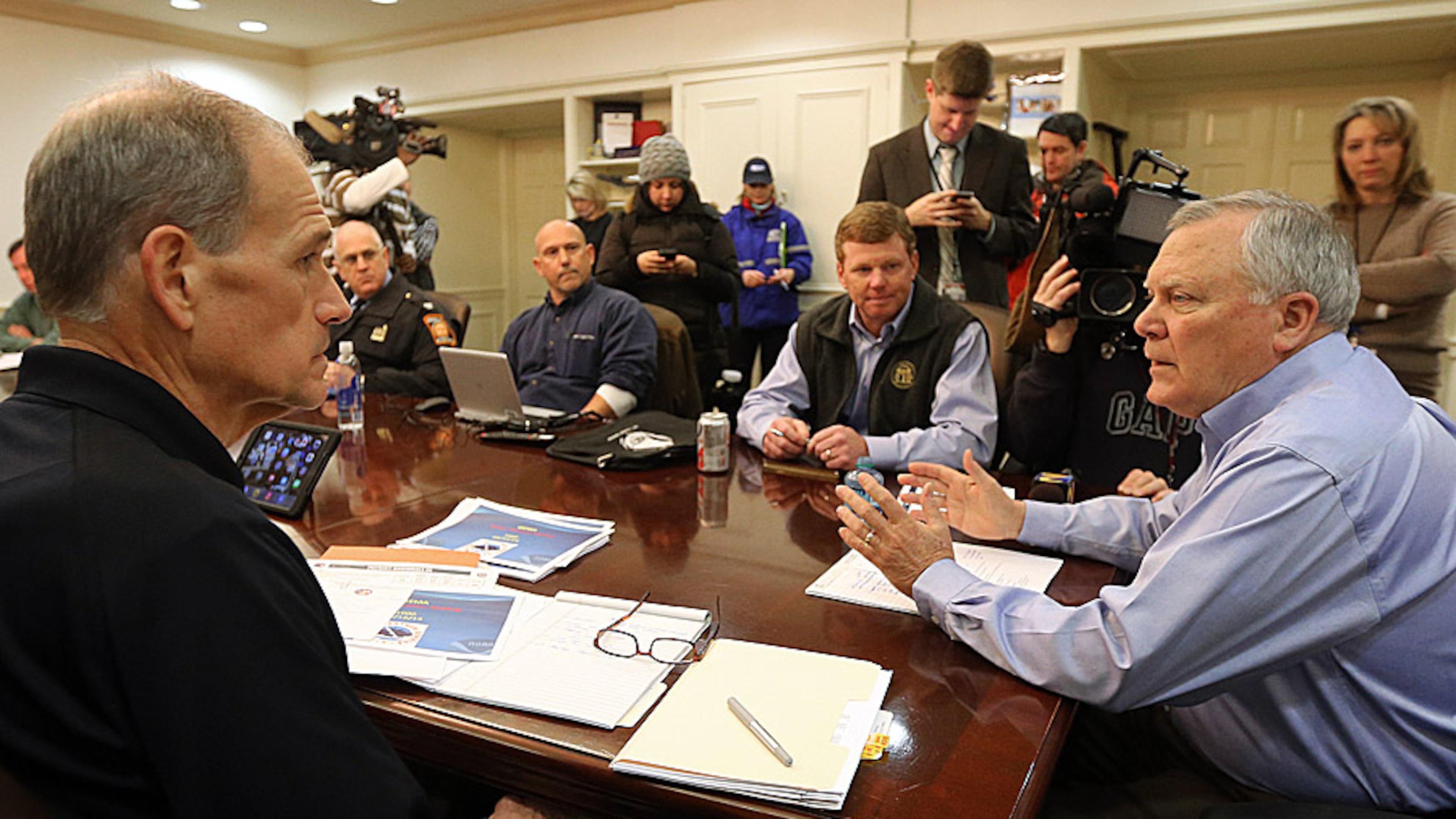Storm task force makes fixes, has limits

(use MyAJC.com logo for headline)
One of the challenges of the governor’s task force on severe weather is the fragmentation of metro Atlanta’s government. To see an interactive graphic on governments of the 10-county region, go to www.myajc.com/news/fragmented-atlanta/
Gov. Nathan Deal on Thursday released a blueprint for better protecting metro Atlanta and the state from severe winter weather, and promised it would work next time — within reason.
The report, compiled over two months by Deal’s office and a 33-member task force, highlights new state investment, training, drills, some new work assignments and other recommendations. But it remained unclear how much it will address a fundamental problem — the fragmented response of a fragmented region — as well as how well the lessons will hold after memories of the January crisis have faded.
“I have great confidence that we can do what is going to be required for the next storm,” Deal said in an interview. He then qualified: “As near as possible.”
There are many reasons to hedge, Deal conceded.
The task force addressed only winter storms, not tornadoes, floods or other events. And while the investment is a big increase, with the Legislature putting $14.5 million toward new winter equipment, it has its limits.
But perhaps most key, the agency that will take the lead in storms, the Georgia Emergency Management Agency, doesn’t have a robust track record of taking charge and faces limits on its ability to do so.
GEMA taking charge is important, according to the task force’s membership of high-ranking business, public safety, transportation and other officials.
"One of the things that we found … was the need for a strong state agency to really kind of lead the charge once an incident occurs," Bart Gobeil, Deal's chief operating officer and the task force chairman, said in delivering the report. "We heard that loud and clear."
However, Gobeil cautioned, GEMA would only take charge “while respecting the local control of the cities and counties.”
The Atlanta region’s 10 central counties contain 70 cities. That means taking charge is not easy. In fact, the recommendation has been made before — it came in an order from Deal in 2011, after a January storm that year.
That did nothing to prevent this year’s disaster. In the January 2014 storm, metro Atlanta drivers swarmed the roads at midday, packing snow into ice and preventing the Department of Transportation from clearing it.
No one at GEMA gamed out the consequences beforehand of leaving it to commuters and schools to discharge all at once when snow started to fall. GEMA received a 3:39 a.m. weather alert for all of metro Atlanta the day of the storm, and discussed it, but did not use the state’s bully pulpit to advise all those drivers to stay home and businesses to close.
In fact, when GEMA went to contact school systems, it found its contact list was out of date. And it was for school emergency contacts, not superintendents, who are the top decisionmakers on an issue such as early closings.
Deal and his appointees said times will change.
The bully pulpit — the state’s ability to be heard and its moral authority to build a team — will be used, Deal said, just as it was in the storm this February, when Georgia was better prepared.
“Admittedly, there are other jurisdictions over whom we don’t have any legal authority to tell them what to do,” Deal said. But if GEMA acts, “then local agencies who have corresponding responsibilities will, as a general rule, work with us,” he said, adding that the lesson has been learned, unfortunately, “through hard times.”
In addition, GEMA will designate one person to watch the weather. The report also recommends updating the school contact list.
GEMA Director Charley English said he would engage the multi-agency emergency operations command as much as 10 times a year to keep in touch and on task.
“I certainly heard loud and clear that there needs to be strong leadership. And I’m prepared to lead our agency and our state in that direction,” English said. “We will be more aggressive and proactive with winter events.”
The admonition to lead is not a change in direction, English said, but he asserted that the results will be different, even after the impact of this January has faded.
The reason: “Experience.”
The state report is available here, on the governor's website.


